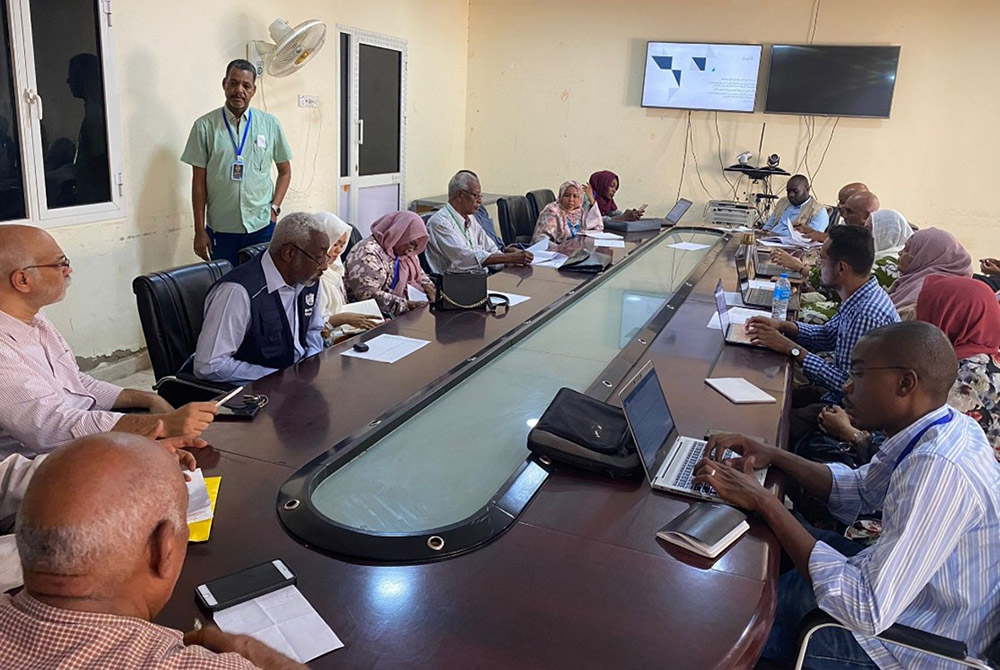 Red Sea Health Cluster meeting in Port Sudan. Photo credit: WHO/WHO Sudan
Red Sea Health Cluster meeting in Port Sudan. Photo credit: WHO/WHO Sudan
13 January 2024 – The escalation of conflict on 15 April 2023 plunged Sudan into a humanitarian crisis. Access to health care and other basic services has been disrupted and the health system is overwhelmed. Supporting the coordination mechanism for the health response in Sudan is at the core of WHO’s health response strategy – and flexible European Union (EU) funding is strengthening this effort.
The health system’s first challenge when the conflict escalated was to sustain coordination and set up public health emergency operations centres (national and subnational) to lead health emergency response and coordinate partners. Health sector coordination mechanisms also had to be moved to alternative coordination channels, led by the Port Sudan hub.
Challenges included the relocation of staff to safer areas amid poor connectivity which affected the smooth flow of information and updates. As a result, the federal and state ministries of health found it hard to maintain coordination meetings with partners to harmonize the response, align interventions and mobilize resources.
Strong coordination mechanisms are vital to an effective health emergency response. This is especially true when dealing with multiple health hazards in fragile situations, such as in Sudan, where partners’ robust involvement is needed.
To meet the urgent need to map partners and launch a coordinated response, in order to maximize benefits to the health system and people in need, WHO negotiated with the EU to reprogramme funding that had been allocated for coordination of the COVID-19 response. Thanks to the flexibility of the EU, the funds were reallocated to urgently support the coordination of Sudan’s latest health emergency.
Through this reprogramming, in-person and hybrid national Health Cluster meetings, as well as state health partners’ forums and higher emergency meetings, were held in Port Sudan. This was in addition to support for the regular state Health Cluster meetings in Red Sea state.
These coordination meetings led to improved partner engagement under the leadership of the federal and state health ministries. The meetings also enabled joint planning, helping to avoid overlap in interventions, as well as a balanced distribution of response activities and supplies across states, as far as security and access would allow.
The coordination mechanism also facilitated the timely exchange of critical updates, data and best practices among partners, which led to informed decisions and better planning.
Such is its success, the coordination mechanism that started in Port Sudan is now being replicated in other locations such as Atbara, in River Nile state.
WHO thanks the EU partnership for generously funding this core emergency response function in Sudan. It has ensured that the right support reaches the right health facilities at the right time through a coordinated response, helping to meet the urgent health needs caused by disease outbreaks, malnutrition and other health hazards.





